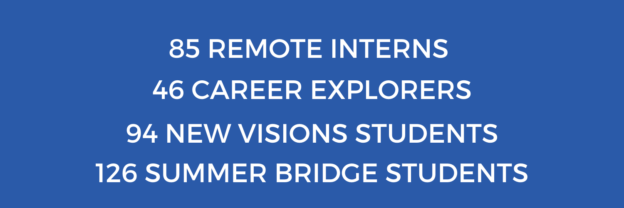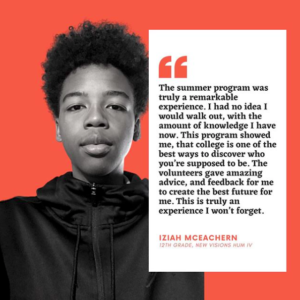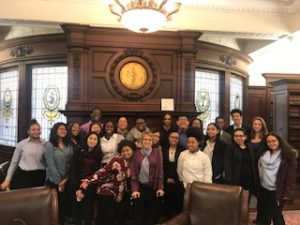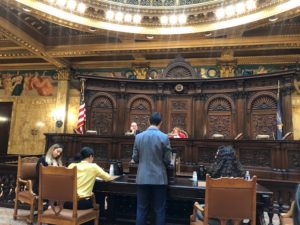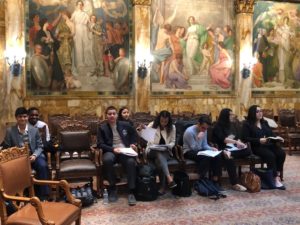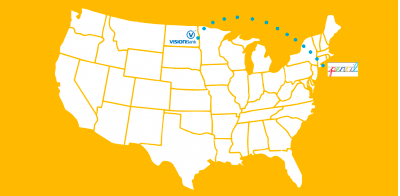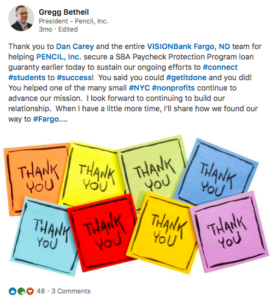This year, as PENCIL was preparing to plan for its 25th anniversary, our world rapidly shifted in the course of a few days. Our team began working remote starting March 27th and immediately moved to update our programming.
The cancellation of the Summer Youth Employment Program and the forfeiture of jobs and internships in an economic downturn caused us to reflect and reevaluate our programming. For the next few months, our team worked tirelessly to secure paid work experiences for our students who needed it more than ever. PENCIL promised to #SaveTheirSummers, and with new partners and resources, we made it happen.
The Internship Program
PENCIL placed 85 interns this summer, all of whom are working remotely. Our interns were placed in positions at companies like DTCC, Bloomberg, Bank Street College, Teach For America and more.
“I am super duper excited that I received an internship because I felt like it was a Godsend,” said Paola Hernandez, who is interning at NYU Wasserman Center.
“Because a lot of people are losing their jobs, are being laid off, and relying on unemployment benefits. For me to have even gotten this internship, it just feels great,” she added.
Each intern is completing at least 100 hours of remote work and providing employers with support for critical functions such as marketing, program development, content creation, and financial management.
Career Explorer Program
Our Career Explorers program engaged 46 high school and college participants. The program is a paid work-based learning experience that includes mentoring by business volunteers from around the city.
Students work on capstone projects that range in industries like Real Estate, Law, Community Service, Finance and more. Their mentors are representative of their capstone focus areas.
Nicholas Sinclar, 16, a junior in Aviation High School is working on a capstone project called Community Intervention. “My main goal is to become a pilot, Nicholas said. “My mentor shares resources with me, and we have similar hobbies like soccer and music. His field of work is also aviation, so it’s a perfect match.”
Career Explorers would not have been possible without the support of our generous sponsors: Bloomberg Philanthropies and the Carnegie Corporation of New York.
Watch here: Career Explorer, Nicholas Sinclair’s Journey
New Visions Summer Career Exploration Program
PENCIL supported students from across four New Visions Charter Schools. Developed in close collaboration with New Visions for Public Schools, the program enabled students to attend career panels and workshops designed to introduce new career paths and build career readiness skills.
Over the four-week program, students earned hours and complete tasks that can be applied to graduation requirements.
“New Visions was very pleased to partner with PENCIL this summer to launch our Career Exploration Pilot Program that served over 80 students across our charter network,” said Jennie Soler-McIntosh, VP Community Engagement and Postsecondary Pathways.
“PENCIL leveraged its expertise in working with schools and its relationships with the business community to provide our students invaluable access to an extended social network and opportunities to participate in weekly career panels and workshops, develop their resumes, practice interviewing skills and develop career plans that will inform their postsecondary plans. We received very positive feedback from our students and look forward to building on this partnership with PENCIL in support of our schools this coming year.”
Summer Youth Employment Program Summer Bridge
PENCIL is also serving 126 students through the Department of Youth and Community Development’s Summer Bridge program, a work-based learning experience designed to provide youth with career development opportunities.
PENCIL has also partnered with the YES Coalition, a group of youth serving organizations working to support SYEP providers. As part of this group, PENCIL has made a series of career panels as well as elements of our project based learning available to other SYEP providers.
“After serving a record number of students during the summer of 2019, PENCIL was excited to see what was possible this year to connect even more students to success. But in April, our team was faced with numerous challenges to harness these possibilities. In the spring I thought we would be lucky to serve 60 maybe 70 students this summer,” explains PENCIL’s VP & Chief Strategy Officer, Jessica Bynoe.
“Instead, we are privileged to be ending the summer having worked with over 350 brilliant young people. If not for the hard work of our team, the belief of our supporters, and the innovation and flexibility of our partners we would never have delivered on our promise and potential. We are looking forward to what the summer of 2021 holds for our talented students!”

